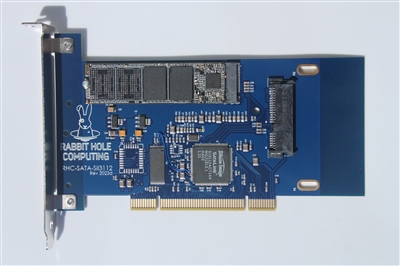Al Kossow
Documentation Wizard
CDs rot from the edges inward.You will be dead before your commercial CDs "wear out."
CDs rot from the edges inward.You will be dead before your commercial CDs "wear out."
They definitely rot faster if you use them regularly. I have a considerable collection and I'd like to keep it pristine. Every so often I break out a retro game for the joy of physical media, but 9 times out of 10 i'm using either a burned CD or am emulator.
I'm a big fan of SCSI, but I think it has some drawbacks for your average user:Or just ZuluSCSI, 50 pin IDE is plenty fast enough for CDrom stuff on older machines.
I'm a big fan of SCSI, but I think it has some drawbacks for your average user:
- Also need to get a SCSI HBA (adapter); are there modern replacements yet? Last I looked, ISA SCSI HBAs didn't seem to be that hard to get, but they were relatively expensive for something that I wouldn't have imagined that many people would have a use for.
- Also need to get a SCSI cable, although I suppose when you order ZuluSCSI you can probably tick a box to get one of those.
- Also need to learn about SCSI IDs and termination, although with most HBAs probably being set to ID 7, and the ZuluSCSI probably set to something other than 7 when it's shipped, and probably having termination enabled when shipped (I'm just assuming it's a very "nice" SCSI device) that might not be necessary for most users.
Of course a big benefit of ZuluSCSI is that it already exists
I dont mean to side track this thread but I have one question for the folks who have been recommending Bluescsi. HAs anyone gotten a bluescsi (and im especially concerned for the early blue pill model specifically) to easily work on an apple II computer? And not only specific to one single scsi card variety as they are all very expensive at this point. I know when I tried on multiple scsi cards I could not get them to work and that was a huge disappointment for me.
i never had any problems like that when I was setting them up on macs.BlueSCSI boards are very picky about the disk images and file names used. If you get a slight typo, or a problem with the disk image, it won't work.
I'm not familiar with hard drives on Apple II machines, but I'd imagine it would be a headache with the tiny partition sizes required. Isn't the max partition size something like 32 MB?
Yeah thats the same issue i was having with my bluescsi and zuluscsi. It would work. Id install or run something i wanted. It would crash and corrupt the image. Id have to reload the image and try again. It was super pickey and finickey. Maybe they ironed things out but i got the zuluscsi when it was brand new and to me it behaved the same way as the bluescsi.Maybe something has changed since I messed with them, but I was never able to create any custom disk images for the BlueSCSI boards I was using, the images always ended up corrupted or unusable. I had to make due with the premade disk images.
They already have these:Someone should develop two SCSI controller to adapters, one ISA and 1 PCI v1. The idea would be that you could mount your choice of 2.5" SSD on the ISA or PCI cards. 128, 256 a d 512GB SSD drives are dirt cheap now days. Most of it could be handled in a low cost FPGA. So long as it is SATA you could really use whatever HD you wanted and SCSI could take the size barrier away.

They already have these:

SATA PCI Hard Card
store.rabbitholecomputing.com
PCI, takes either a SATA drive(spinning or SSD) or an NVMe.
For the ISA world existing ISA-to-adapters fill the niche. You just don't need more than what fits on a CF card if you're in
I feel like the operating system becomes the bottle neck at that point.Nope, not a size or speed issue, more of a dependability issue for me in the ISA world. But I could use about 30GB to hold all I want on my ISA final system.
Nope, not a size or speed issue, more of a dependability issue for me in the ISA world. But I could use about 30GB to hold all I want on my ISA final system.
You're going to need some exceedingly eccentric system for that to work. FAT16 has 2 GB partition limits, you're going to have a crapton of drive letters. FreeDOS supports FAT32, but I don't know how far back that goes CPU support wise. Volumes that large are going to have significant data integrity issues.
